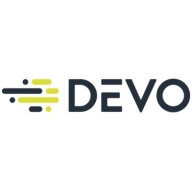

USM Anywhere and Devo are significant players in the cybersecurity space. User reviews indicate USM Anywhere is preferred for its simpler deployment and stronger customer service, while Devo stands out with its robust feature set.
Features: USM Anywhere is appreciated for its extensive threat detection capabilities, intuitive centralized management, and straightforward deployment. Devo has advanced analytics, scalability, and comprehensive event management.
Room for Improvement: USM Anywhere users suggest improving its data integration capabilities and the performance of certain modules. Devo users wish for a more streamlined user experience and better documentation.
Ease of Deployment and Customer Service: USM Anywhere is praised for its straightforward deployment process and responsive support team. Devo, although requiring more configuration, offers comprehensive deployment flexibility. Users find USM Anywhere's customer service more reliable and accessible compared to Devo.
Pricing and ROI: USM Anywhere offers competitive pricing, making it appealing for small to medium-sized enterprises. Devo's higher pricing is justified by its expansive feature set and better scalability. Users report a favorable ROI for both, but Devo's extensive capabilities provide more significant long-term value.
| Product | Market Share (%) |
|---|---|
| USM Anywhere | 0.9% |
| Devo | 1.1% |
| Other | 98.0% |


| Company Size | Count |
|---|---|
| Small Business | 7 |
| Midsize Enterprise | 4 |
| Large Enterprise | 11 |
| Company Size | Count |
|---|---|
| Small Business | 64 |
| Midsize Enterprise | 29 |
| Large Enterprise | 25 |
Devo is the only cloud-native logging and security analytics platform that releases the full potential of all your data to empower bold, confident action when it matters most. Only the Devo platform delivers the powerful combination of real-time visibility, high-performance analytics, scalability, multitenancy, and low TCO crucial for monitoring and securing business operations as enterprises accelerate their shift to the cloud.
USM Anywhere centralizes security monitoring of networks and devices in the cloud, on premises, and in remote locations, helping you to detect threats virtually anywhere.
Discover
Analyze
Detect
Respond
Assess
Report
We monitor all Security Information and Event Management (SIEM) reviews to prevent fraudulent reviews and keep review quality high. We do not post reviews by company employees or direct competitors. We validate each review for authenticity via cross-reference with LinkedIn, and personal follow-up with the reviewer when necessary.